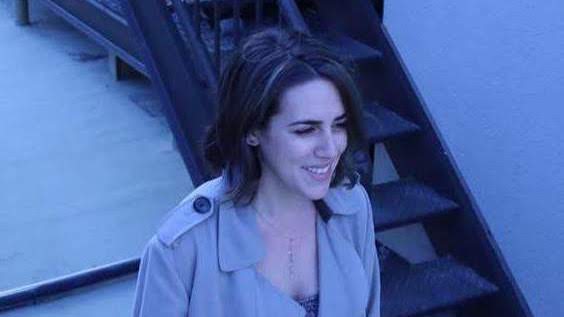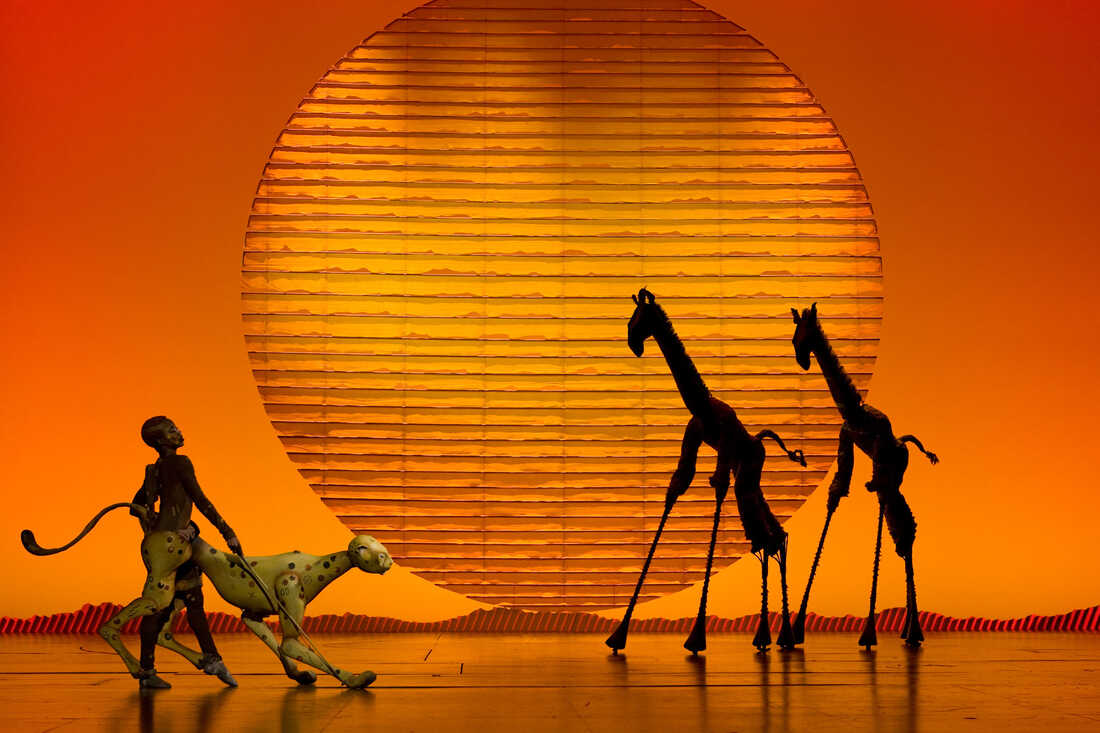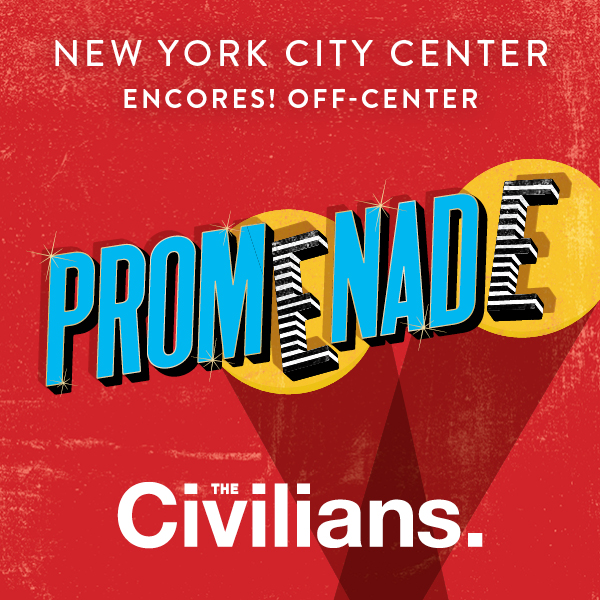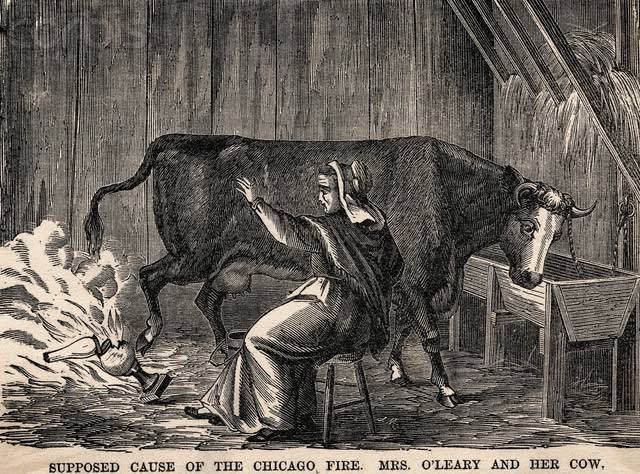As part of the R&D In Process series, Program Director Ilana Becker interviewed director Whitney Mosery about directing theater in an uncertain moment and her work in the 2019-2020 R&D Group on Kate Douglas and Grace McLean’s new musical, “Against Women and Music!”
“Against Women and Music!” is an exquisitely fun and twisted anachronistic chamber musical that explores the 19th Century perception that music was dangerous for women to play – or even hear. It will receive a work-in-progress showing on June 29th at 3pm EDT. To RSVP to the showing, click here.
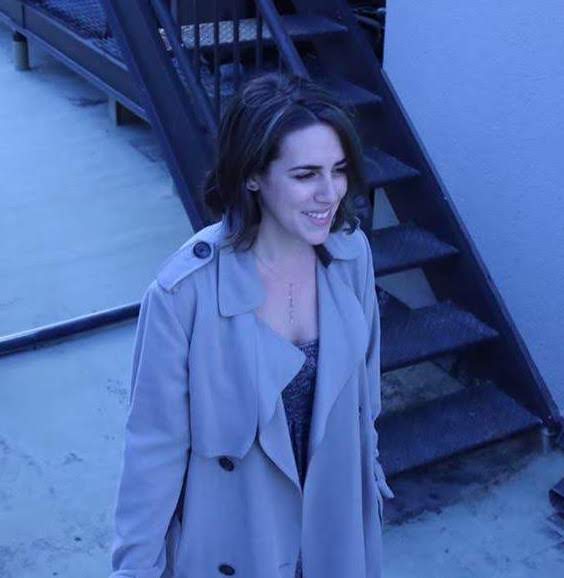
ILANA BECKER: So, what’s been keeping you aloft during this time?
WHITNEY MOSERY: Sunny days! I’ve had a lot of time to think about what my next steps should be. Because a lot of the things that were taking up my time pre-Corona have been canceled, a lot of the projects that I was working on have either been postponed indefinitely or canceled completely, and so suddenly I’m wonderfully free to pursue projects that maybe were on the back burner or ideas that were just nascent. I’ve been really enjoying reaching out to collaborators from previous projects and saying, “Hey, I have this little idea, do you want to get started on it?” or picking up a thread that we might have dropped because a collaborator or I got busy. So it feels a little bit like going into that bottom drawer of my creative mind and pulling out half-formed thoughts or unfinished projects, and just kind of holding him up to the light of the day. Saying, “Oh, did we drop this for a real reason or just because we got busy?” I’m really delighting in that little excavation.
ILANA: I’d love for you to tell us about one of those projects, Foreign Bodies.

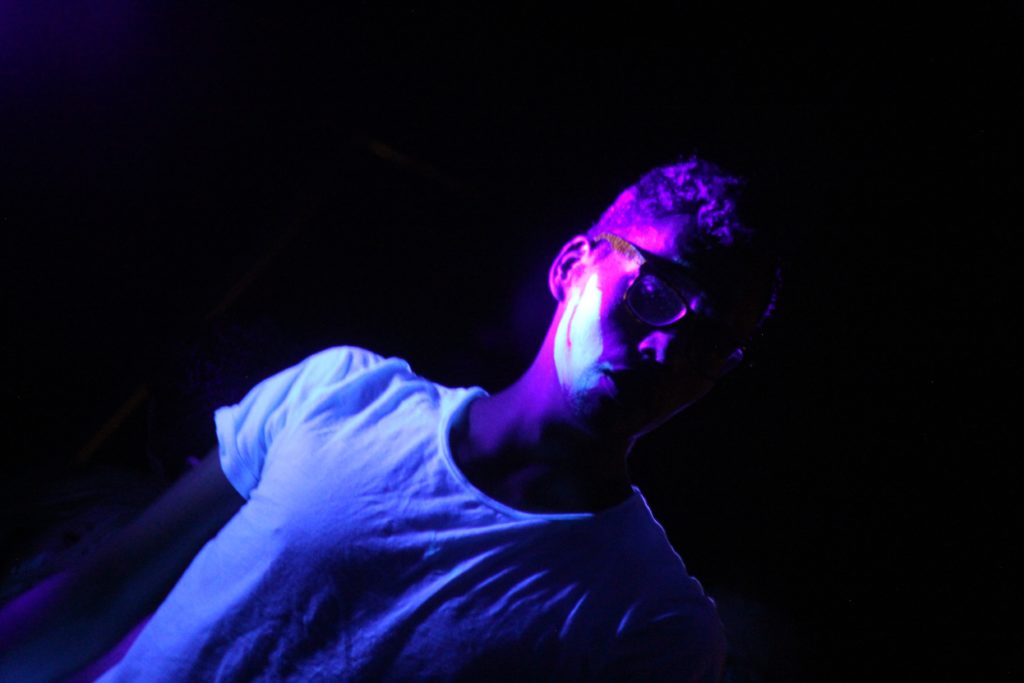
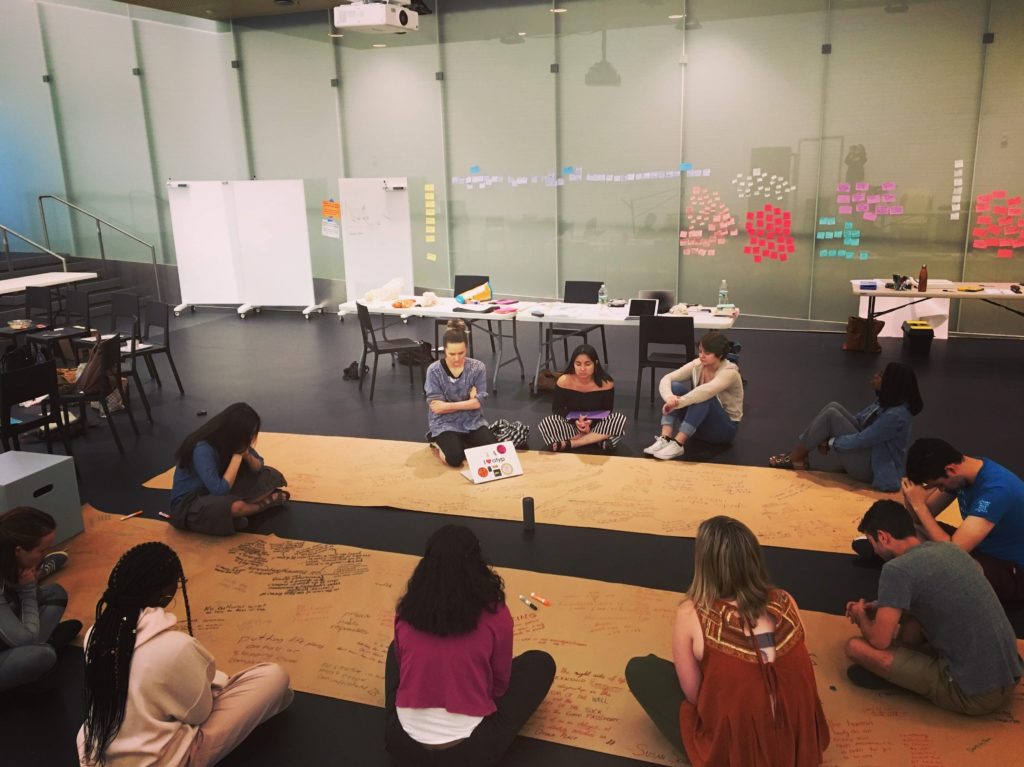
Foreign Bodies photos courtesy of Whitney Mosery.
WHITNEY: Foreign Bodies is a new play with music that began as a devised piece that I created as part of the Habitat Theatre Company’s Director’s Playground. When I was living in London, one of my closest friends was an Accident & Emergency doctor there. She had this encounter with a patient at 3AM that was just absolutely mind-blowing to me—both the encounter itself and also all of the societal and socioeconomic inferences. So I brought the idea to a friend of mine, a playwright, and we devised some early material with a wonderful group of performers.
This was in like 2016, I think? Maybe a little later. And it was about medical isolation, quarantine. It was about the assumptions we have about what it means to be alone, what it means to be isolated. Societal tools that are meant to create connection but actually can provoke more isolation… so, the internet was one of those things. We were talking about public health vs. personal safety. Public health vs. personal freedom.
The particular story that inspired the project was about a Polish undocumented immigrant in the UK who had been diagnosed with an extensively drug-resistant form of Tuberculosis. He essentially had been locked up in medical isolation indefinitely because there was no cure. They can manage the symptoms, but they didn’t know what else to do with him. He was a young 20-something; it’s hard to say whether he knew what he was doing or whether he was behaving sort of out of desperation. Whatever his motivations were, he would break out of medical isolation about once a month and would go on a bender. He would get drunk and he would make out with girls, and then the hospital would call the cops. The cops would find him and pick him up, bring him back to the hospital, and the whole cycle would begin again. It’s the sense of a diminishing mental state—you know, mental and physical toll of isolation vs. public safety. And of course there was also classism and xenophobia implied in it, because as a Polish immigrant in the UK, this person was subject to a lot of xenophobic vitriol and there’s a sense that he could have possibly received one of the last-line-of-defense drugs if he had been a citizen, or if he had more money, or if he had been insured privately. So, long story short, we were making a play with music about life in quarantine!
And we came up with 20 minutes of material devising with a company. I sort of felt like we needed to get back to the kernel of the idea, which is this real experience, and so we turned it into an investigative piece. We started interviewing doctors who worked with infectious diseases. And we started interviewing patients from all over the world—the Philippines, South Africa, India—who were either in medical isolation or had been—about their experiences, most of which was deeply human. A lot of boredom, a lot of horniness, a lot of just being really uncomfortable and not being able to settle in any sort of routine, losing track of the days. It wasn’t deep, existential thoughts about public health. It was more like, “I just read the same page of this book seven times and now I’m going to take a nap for the third time today.”
Out of a place of isolation came this real desire to be counted as another person whose experiences were just like other people’s.
It was almost like people were trying to communicate just how fundamentally human their experience was as opposed to how unique and idiosyncratic it was. I found that really interesting. Out of a place of isolation came this real desire to be counted as another person whose experiences were just like other people’s.
We were just exploring all the things that we now are so aware of. And at the time it felt like we were mining this experience for the Human and the Universal. It felt amazing and exciting. And it also felt like we had found a way to talk about something kind of dry, like a Public Health crisis. You know, the WHO calls drug resistance “the single greatest threat facing the human species”. That was pre-Corona. That was on their website and we were trying to find a way to make that sound exciting and I thought that we had. And then Corona. I don’t know—I’ve been talking about this with my collaborators. I don’t know whether there is a place for this project anymore, because suddenly it’s reactive rather than predictive. And there might be incredible work that comes out of this that is reactive to the current moment, that is representative of some of our experiences, but it’s just sort of not the work that I’m most interested in, which is investigative into issues that we hadn’t yet fully looked at as a society.
ILANA: How has the collaboration and conversation with Kate and Grace on their piece, Against Women & Music! changed over time?
WHITNEY: I think in a delightful way. Our interaction – which is just to say my offer to them of dramaturgical support as they need it, somebody to bounce ideas off of, somebody to try to send down a research rabbit hole if needed—all of that still remained post our shifting circumstances. In fact, I’m really grateful to have it! So that’s been great: scheduling a call to share research or reading a draft and then having a conversation about the response to the draft. That’s felt bizarrely normal and, you know, it’s been fantastic and meaningful to me.
As we get closer to the FINDINGS Series, I start to think more and more about our present circumstances. I think it’s already quite difficult to present a new piece, especially musical, in a stripped-down format like a reading. It’s so much work to rehearse—especially the music Grace writes, which is incredible and complicated. And Kate’s comedic rhythms are so specific. You’d really want to spend a lot of time in a room together, having people bounce off each other and feed off each other. The slightest pause or hesitation where you don’t want it, let’s say because the Zoom and internet froze for a moment, could really disrupt a rhythm you worked really hard to develop. So it’s been on my mind a lot. The work to get the piece to presentation date has continued so beautifully and I want to do it justice.
ILANA: How do you invite actors into a space to develop material when our spaces are these little boxes?
WHITNEY: I’m literally sitting in an armchair right now so I’m going to armchair philosophize (laughs). There’s something about intimacy and being invited into the direct eyeline of a performer that I think is exciting and not always accessible to the theater audience. There’s something about acknowledging the medium by which you’re communicating—like looking directly at the camera, knowing where you are in the frame, making sure the other person can hear you. All of that which even in film you don’t usually do, where you’re trying to ignore the reality of the medium for the most part. So I think there are nuances to this sort of lens-to-lens, screen-to-screen interaction that I think are worth mining. I think it’s also worth asking about what is our relationship as performers and people who are presenting work to our audience. Because I, as a director, might want to get my actors to connect with each other as much as possible in order to sort of overcome the stilted nature of this medium, and that might involve, to a degree, having to rehearse a scene differently than you would for an audience [in the room]. I think that acknowledging the reality of the situation, like that sort of suspension of disbelief in this situation feels that much more difficult to achieve, and also slightly disingenuous.
ILANA: Can you tell us about some of the research that you, Grace, and Kate have been digging into?
WHITNEY: Did I show you the books that I have? Wait a second! (Whitney hops off screen and returns with a small but mighty book pile.) My very last errand before the Epic Shutdown was to go to the Brooklyn Library and pick up this book, The Gilded Age, and this book, The Opulent Interiors of the Gilded Age, because a lot of the research I’ve been doing for them is the sort of political, social, and cultural context for the time period that they’re writing in. A bizarre, bizarre time when there was a kind of explosion of scientific advancements, and the invention of capitalism, and a huge explosion in economic prosperity of the country which came with a lot of opportunities to grow, to pull oneself up by one’s bootstraps, and that kind of entrepreneurial spirit. But it also was a horrible time to be a member of the working class, or to be a child, or to be a woman. There was an incredible amount of disempowerment that went along with the Boom times—and I think, you know, people will recognize that pattern through history. So I’ve been supplying primary research materials, in addition to the kind of pamphlet that inspired the piece.
The work to get the piece to presentation date has continued so beautifully and I want to do it justice.
Going a little bit more in depth into the source of income… The story is set in a very wealthy home, amongst a very wealthy family. Where did that wealth come from? How might they have gotten it? What are the expectations set on young women in that time period? Could they have inherited that money, and what did that mean? Could the woman of the house have been the person to bring the money to the family, and if so what does that mean? How does having money change your sense of identity? Whereas once there was a sense of the aristocracy not working and if you were working that was sort of embarrassing, there was a change in the sense that being a self-made person was maybe of greater social currency. So, just sort of mapping some of the undercurrents so that this absurdist, heightened piece that they’re writing is set against the context of an America that was finally learning to define itself and was creating an identity that we are still stuck with today.
This interview was conducted on April 27, 2020. It has been edited and condensed for clarity.
Authors
-

Whitney Mosery (Director) is a Brooklyn-based director, dramaturg, and art activist. Favorite credits: GIRL FROM NOWHERE (NYMF/St. James/Ed Fringe), presented in support of Planned Parenthood; FOREIGN BODIES (Princeton), a documentary piece about superbugs; and the play/ritual/bonfire/danceparty BACCHANALIA (US/UK/Greece). Associate Director: HARRY POTTER AND THE CURSED CHILD, AMERICAN PSYCHO, KING CHARLES III. Next up: dramaturging an as-yet-untitled Cirque du Soleil show, premiering in April 2020. Proud member of Orchard Project NYC Greenhouse, former Almeida Director in Residence, and Williamstown Theatre Festival Directing Corp alum. BA Princeton, MA RADA. www.whitneymosery.com
-
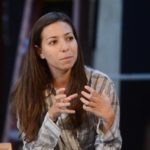
Ilana Becker is a producer and director specializing in new play and musical development, investigative and verbatim material, community-driven projects, and arts education. In addition to currently serving as The Civilians’ R&D Group Program Director, she has been a member of the staffs of All For One Theater, Lincoln Center Education, and Bret Adams Ltd, and spent a year as the Associate Artistic Director and Interim Artistic Director of Company of Fools/Sun Valley Center for the Arts. Line Producing includes work with CollaborationTown, All For One, and Jewish Plays Project. Ilana is the creator of Argument Sessions, a series of ongoing immersive theatrical events weaving verbatim SCOTUS transcripts with collaboratively developed original material. She is a member of the WP Theater 2018-2020 Producers Lab, and an alum of the Civilians’ R&D Group, Lincoln Center Theater Directors Lab, DirectorsLabChicago, Fresh Ground Pepper PlayGroup, as well as a Playwrights Horizons Robert Moss Directing Fellow and an Emerging Leader of NY Arts Fellow. Much gratitude to Megan and EllaRose for laying the R&D Group groundwork. www.ilanabecker.com


